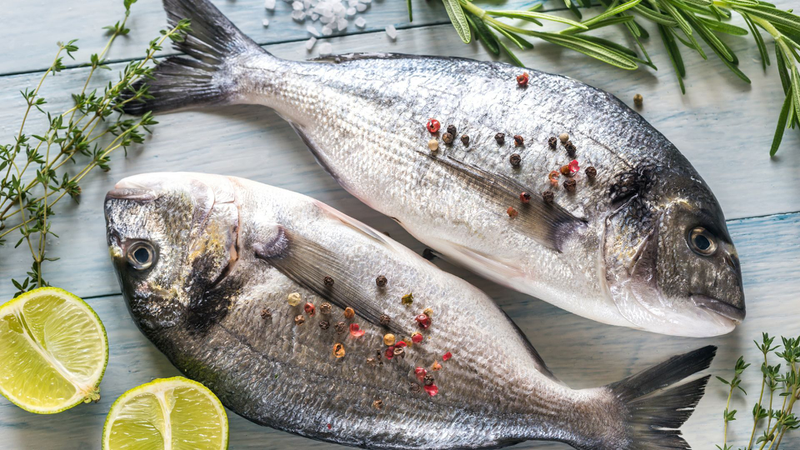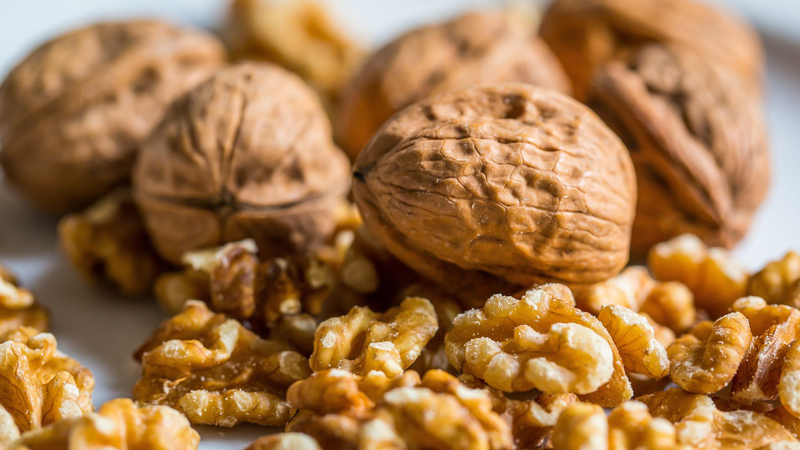Not everyone is well-versed in omega-3 rich foods and their positive effects on the body. In this article, we will explore the top 7 foods that contain omega-3s and learn how they can contribute to improving your overall health. Let’s explore these nutritional supplements to improve your quality of life!
Omega-3 fats are one of the essential fatty acids that the human body cannot produce on its own. These fatty acids are important for overall health, playing an important role in maintaining brain function, reducing inflammation, and protecting the heart. Here are 7 foods that are rich in omega-3s and their health effects.
Fatty fish
Salmon and fatty fish such as mackerel, herring, sardines, and anchovies are also rich sources of omega-3s. For example, mackerel provides around 2.5g of omega-3 per 100g, while herring has between 1.3g and 2g. Consuming two to three servings of fatty fish a week not only helps protect heart health, but also improves brain function and reduces inflammation in the body. These fish are also rich in protein and essential vitamins such as B12, which support overall health.

The American Heart Association recommends eating two to three servings of fatty fish per week.
Cod Liver Oil
Cod liver oil is a very popular supplement. A teaspoon of cod liver oil contains about 0.9g of omega-3 along with vitamins A and D. Vitamin D is essential for bone health and the immune system, while vitamin A supports vision and immune function. However, it is important to note that consuming too much cod liver oil can lead to excess vitamins A and D, which can be harmful to health. Adults can take about 1 tablespoon per day, while children should take it every other day.
Oysters
Oysters are a surprising source of omega-3. In 100g of raw oysters, there are about 0.7g of omega-3. In addition to providing omega-3, oysters are also rich in trace minerals such as zinc, copper and magnesium. Zinc is an essential mineral that helps strengthen the immune system, support the body’s recovery and maintain healthy skin. Oysters are also rich in protein, making them a good choice for those looking to add nutrients without adding too many calories.

Not only does it contain omega-3s, it’s also a valuable source of zinc and protein to support immune health.
Soybeans
Soybeans are an excellent source of omega-3s for vegetarians. In 100g of soybeans, there are about 1.4g of alpha-linolenic acid (ALA), the type of omega-3 that comes mainly from plants. Although the body has a harder time absorbing ALA than EPA and DHA from fish, soybeans are still a good choice for people who do not eat fish. Soybeans also provide plant-based protein, helping to supplement nutrition for those on a vegetarian diet.
Chia seeds
Chia seeds are known as a superfood, rich in omega-3s. In a tablespoon of chia seeds (about 15g) contains about 5g of ALA. Chia seeds are also a rich source of fiber with nearly 10g in a tablespoon, helping to improve digestion and feelings of fullness. In addition, chia seeds also contain essential minerals such as calcium, iron, magnesium and zinc, which are good for bone health and the immune system.
Walnuts
Walnuts are a nut rich in omega-3s, with 2.5g of ALA per 28g serving. In addition to omega-3s, walnuts are also a powerful antioxidant, which helps protect the body from the effects of free radicals. Research shows that consuming walnuts can reduce the risk of cardiovascular disease, improve brain health, and boost immune function.

Walnuts not only provide omega-3 but also contain antioxidants, which are good for the brain.
Vegetable Oils
Vegetable oils also provide omega-3s, although in smaller amounts than fatty fish. Flaxseed oil is one of the oils with the highest omega-3 content, with 7.3g of omega-3s per tablespoon. Soybean oil and canola oil also contain omega-3s, but in smaller amounts, around 0.9g and 1.2g, respectively. Including vegetable oils in your daily diet can help boost your omega-3 intake if you don’t eat fish regularly.
Including omega-3s from a variety of food sources not only improves heart health, but also supports brain health, reduces inflammation, and improves immune function. Adding foods like fatty fish, cod liver oil, oysters, soybeans, chia seeds, and walnuts to your daily diet is an effective way to ensure your body gets the omega-3s it needs. Consider your diet and look for suitable supplement options for better health.





